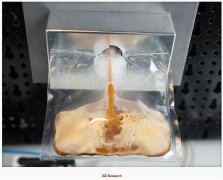Taiwan coffee tested positive for ochratoxin official clarification: it does not exceed the EU standard.
According to a report in Taiwan's "Dongsen News," Taiwan's "Consumer Security Office of the Executive Yuan" recently announced four coffee products on the market, which have not been found to be excessive, but may cause kidney failure. The "Food and Drug Administration of the Ministry of Health and Welfare" of the Taiwan authorities hastened to explain on the 17th, stressing that Taiwan's current standards have been assessed and are consistent with the European Union, "in the case of normal coffee consumption, there will be no health hazards caused by excessive intake of ochratoxin."
Taiwan's "Consumer Protection Agency" yesterday announced nine coffee products marked as substandard, and pointed out that although 4 coffee products containing ochratoxin A did not exceed the 5ppm standard set by the Ministry of Health and Welfare, ochratoxin An is a secondary metabolite produced by mold, so drinking large amounts of ochratoxin An in a short period of time may still cause acute renal failure, while long-term consumption of low dose may cause necrosis of proximal renal tubule cells. Pregnant women miscarriage, abnormalities and other conditions, still held a press conference to announce.
The Food and Drug Administration pointed out that during the implementation of the "Monitoring Program for mycotoxins in Foods sold in the Market", ochratoxin A was detected in only 6 coffee powders from 2012 to May 2014. ochratoxin A was detected in the range of 0.7-2.1 ppb, with an average concentration of 1.28 ppb, all in line with Taiwan's "limit Standard for mycotoxins in Food (5 ppb)".
"in the case of normal coffee consumption, there will be no health hazards caused by excessive ochratoxin intake," says the Food and Drug Administration. Taiwan's current standards are based on risk assessment results such as the background value of coffee products on the island and the exposure of people's consumption of coffee. According to the study, when people drink coffee normally, Jiankang will not be affected by excessive ochratoxin intake, and Taiwan's standards are also consistent with the European Union.
However, the "Food and Drug Administration" particularly reminds the public that in order to maintain the quality, hygiene and safety of coffee beans, they should pay attention to the temperature and humidity of the storage environment. Coffee powders that have been roasted and ground are more likely to become moldy due to moisture absorption and should be used as soon as possible.
Important Notice :
前街咖啡 FrontStreet Coffee has moved to new addredd:
FrontStreet Coffee Address: 315,Donghua East Road,GuangZhou
Tel:020 38364473
- Prev

[Jamaica] Mohao Blue Mountain Coffee Manor
Mohao gets its name because of the rare species of native trees planted in the Blue Mountains.
- Next

Italian companies design a new coffee machine that can be used in space.
A coffee machine designed by an Italian company that can be used in zero gravity.
Related
- Can I make coffee a second time in an Italian hand-brewed mocha pot? Why can't coffee be brewed several times like tea leaves?
- Hand-brewed coffee flows with a knife and a tornado. How to brew it? What is the proportion of grinding water and water temperature divided into?
- What is the difference between Indonesian Sumatra Mantinin coffee and gold Mantinin? How to distinguish between real and fake golden Mantelin coffee?
- What does bypass mean in coffee? Why can hand-brewed coffee and water make it better?
- Unexpected! Ruixing Telunsu lattes use a smoothie machine to foam milk?!
- % Arabia's first store in Henan opens into the village?! Netizen: Thought it was P's
- Does an authentic standard mocha coffee recipe use chocolate sauce or powder? Mocha Latte/Dirty Coffee/Salty Mocha Coffee Recipe Share!
- What is the difference between Vietnam egg coffee and Norway egg coffee? Hand-brewed single product coffee filter paper filter cloth filter flat solution!
- What is the difference between sun-cured and honey-treated coffee? What are the differences in the flavor characteristics of sun-honey coffee?
- How to make Italian latte! How much milk does a standard latte use/what should the ratio of coffee to milk be?

